Test days are equally as exciting as they are dread inducing. I communicate to students that it is their opportunity to show me what they know, but then I begin to feel doubtful. Today, I am going to share four alternative assessments in math that you might consider using.
What if they all fail? Did I review this concept enough? Did they study? Is the test too hard? Is the test too easy? What if they don’t use their strategies?
I also feel frustrated when students who were really excelling the entire unit end up with a grade that did not reflect what they knew. We all have those learners in our classroom who can perfectly articulate how to solve a variety of problems, but when it comes to a test, they underperform.
Sometimes a multiple choice or free response test is not the best way to assess what our students know and what they have learned. As teachers, we use a variety of strategies to reach our students–and we can do the same when it comes to the assessment!
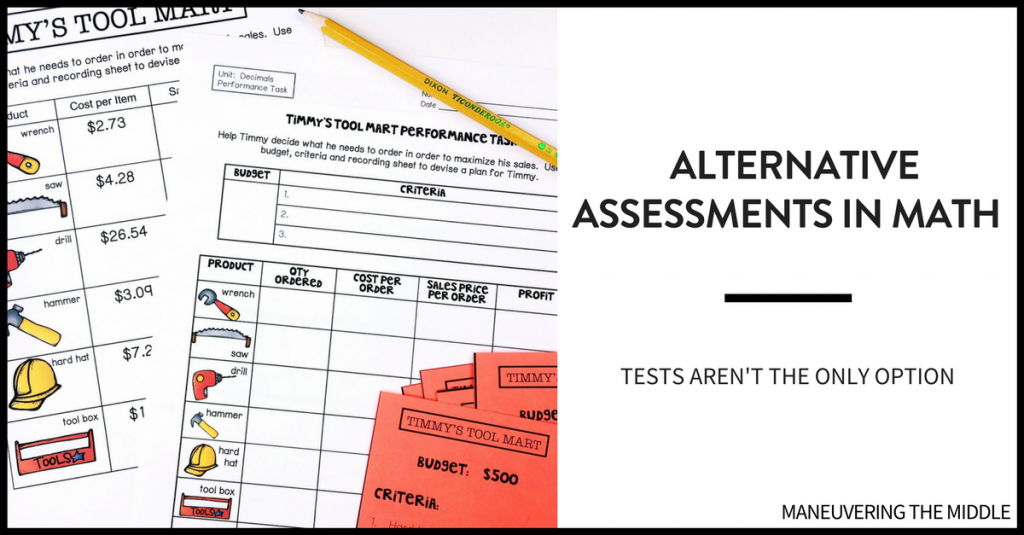
ALTERNATIVE ASSESSMENTS IN MATH
1. Mini Quizzes
Quizzes are like the little sister of the summative test, but they can be useful in units that are really long, and with topics that really build on themselves. I typically like to use mini quizzes when I cover a standard like 6.3(E) multiply and divide positive rational numbers fluently. Positive rational numbers include numbers with decimals, fractions, and mixed numbers; division with decimals includes the decimal in both the divisor and the dividend. This standard alone might take up to three weeks to teach, so I would prefer 3-4 quizzes along the way. Another benefit to using multiple quizzes instead of one test is that you do not lose an entire class period to testing, and your grade book will be full. #teacherwin
Consider allowing students to attend tutorials and re-quiz as the unit progresses. This min quiz style also enables you to pinpoint exactly where the misconception lies and address it quickly.
2. Projects
Whenever I give students surveys to assess how my class is going, the most frequent response I receive is that students would like to complete more projects in class. I love projects too, and I find that projects as an alternative assessment allow creative students to shine! Although students can be more invested in projects, it is important to set up a clear rubric with a clear criteria for success. It will make grading more efficient and organized. I typically use a project to assess understanding in geometric concepts.
3. Performance Tasks
Performance tasks as an alternative assessment answers the question, “When are we ever going to use this?” Performance tasks allow students to think critically and apply their content understanding to solve real world problems. Similar to projects, grading can be challenging without a rubric and criteria for success. I have used a performance task to assess understanding in percents with tax, tip, and discount.
A great tip is to make this a task that can take no more than one or two days. One year I made the mistake of handing out markers only to find out that there were several students who were spending too much time “decorating”. 🙂 Now, students can complete the performance task as a rough draft and earn supplies if they would like to extend the assessment further.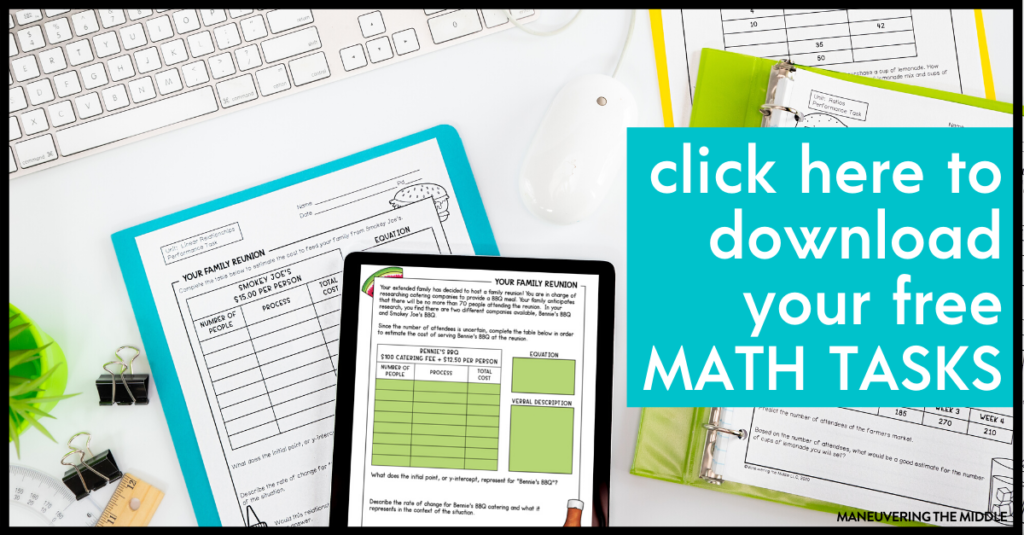
4. Google Forms
Google forms isn’t necessarily an alternative assessment, but it can be an alternative way to collect the information that is assessed. There are two ways to utilize Google Forms based on your familiarity.
Basic
The easiest would be to create a form that acts as a scantron. The students would still show their work on paper and the responses would still be there. Students would then just submit the answer for question 1, 2, 3, etc. As a teacher this means that you are going to create a form with the questions and then click “settings” and “turn on form”. This will allow you create a key and assign points to each question.
Advanced
You can take your assessments and actually type them into Google Forms, so it’s more like a true online assessment with the question and answer choices on the computer. This is more time consuming but if you are a 1:1 school or have computer access, it might be nice to have year after year.
BONUS: Students create the assessment
To be honest, this is not my favorite option. However, I know that many teachers rave about allowing their students to create an assessment. When students create the test it provides buy-in to the content and ownership over their assessments. I would suggest asking students for test-like questions and then compiling them. This would allow you some final oversight to ensure all of the material was tested and weighted appropriately.
What are some of the alternative assessments in math that you already use? Which alternative assessments are you willing to try this next school year?
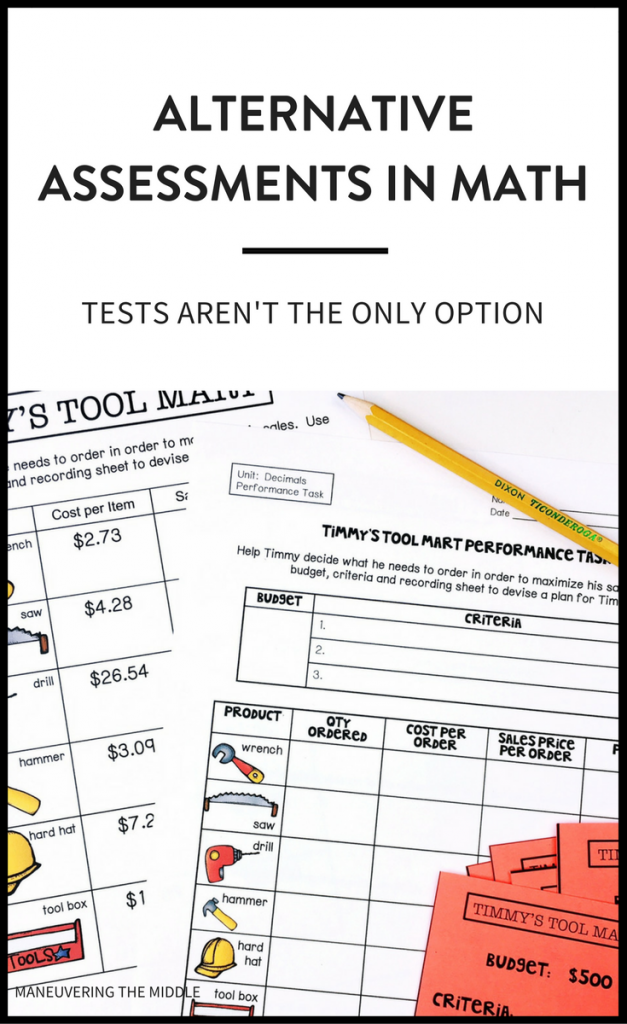
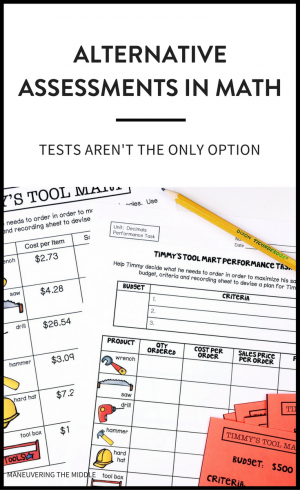
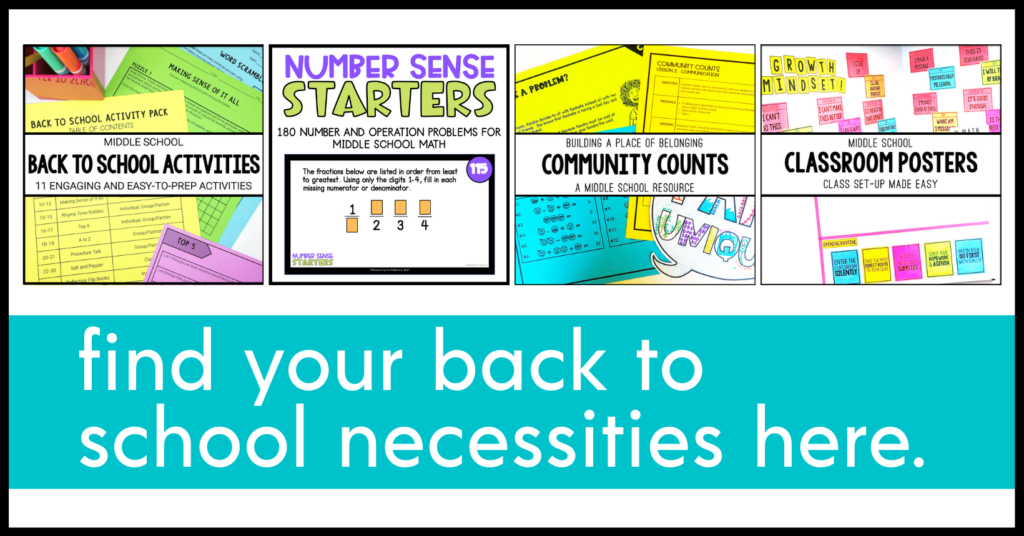
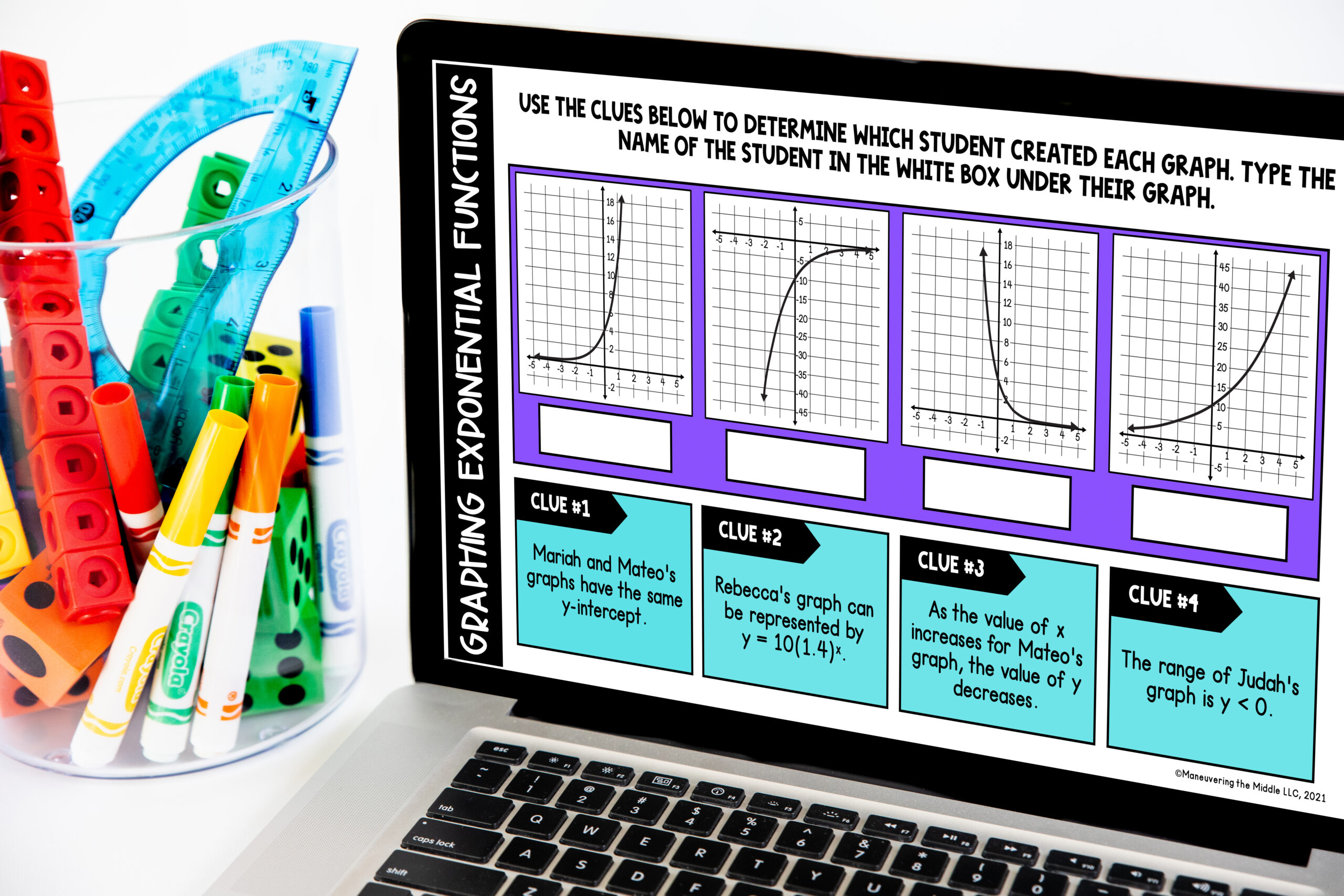
Hi! Do you have any tips for creating rubrics? Do you have any examples to share? I love implementing projects in my classes, however, I find I grade significantly easier than maybe I should and do not always look for content accuracy as much as effort and creativity (I’m always like, “but they worked sooooo hard!!”). I am feel I am not providing enough constructive feedback on the content. This is a weak area for me, something I am considering focusing on as one of my PDP goals next year. Any tips are appreciated 🙂 Thank you!
Hi Betsy, you make a great point! I liked to have students complete the projects in steps so avoid them doing this great elaborate project incorrect. I would suggest something around a 40/60 split for the creativity/content. It helps to go through the rubric with the students at the beginning so that they can see where the points are coming from, too. Hope that helps!